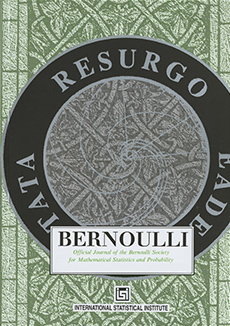Abstract
This paper gives a precise characterization of the fundamental limits of adaptive sensing for diverse estimation and testing problems concerning sparse signals. We consider in particular the setting introduced in (IEEE Trans. Inform. Theory 57 (2011) 6222–6235) and show necessary conditions on the minimum signal magnitude for both detection and estimation: if $\mathbf{x}\in\mathbb{R}^{n}$ is a sparse vector with $s$ non-zero components then it can be reliably detected in noise provided the magnitude of the non-zero components exceeds $\sqrt{2/s}$. Furthermore, the signal support can be exactly identified provided the minimum magnitude exceeds $\sqrt{2\log s} $. Notably there is no dependence on $n$, the extrinsic signal dimension. These results show that the adaptive sensing methodologies proposed previously in the literature are essentially optimal, and cannot be substantially improved. In addition, these results provide further insights on the limits of adaptive compressive sensing.
Citation
Rui M. Castro. "Adaptive sensing performance lower bounds for sparse signal detection and support estimation." Bernoulli 20 (4) 2217 - 2246, November 2014. https://doi.org/10.3150/13-BEJ555
Information





